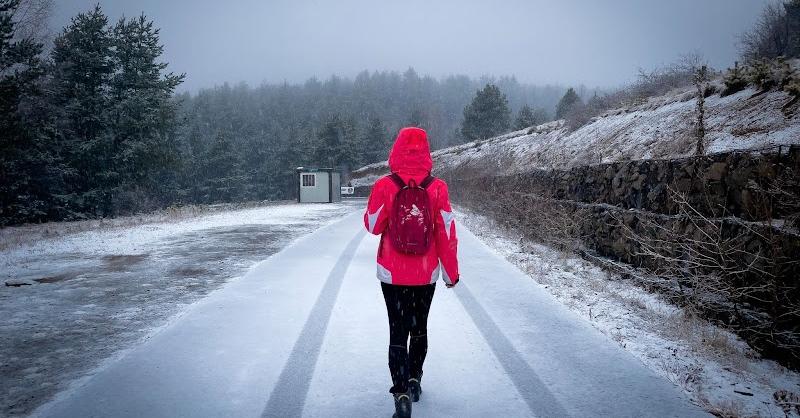Sustainable journeys are increasingly essential as people aim to reduce their environmental impact while exploring the world. It’s about making conscious decisions to reduce waste, conserve resources, and follow eco-friendly practices. Small steps, like using public transport, staying at eco-friendly accommodations, and joining responsible tours, can make a positive change. Luis Chanaga discusses the sustainable journey here.
Minimizing carbon emissions is critical. Ditch the car and opt for walking biking, or public transport – this can significantly lower greenhouse gases. Also, choose eco-friendly accommodation that practices energy conservation and waste reduction.
Be supportive of local communities and economies. Stay at locally owned hotels and use local services like restaurants and tour operators. This not only offers an authentic experience but also helps regional growth.
Respect local cultures and traditions, use water wisely, and dispose of waste properly. Be aware of your ecological impact when snorkeling or hiking to preserve ecosystems.
Sustainable traveling is an ongoing process that requires knowledge and awareness. Seek information on journey initiatives and support organizations dedicated to environmental conservation. According to National Geographic’s Viable Journey Guidebook, sustainable tourism has the potential to contribute to biodiversity conservation while providing economic benefits for local communities.
Benefits of the sustainable move
Sustainable travel has lots of advantages for both travelers and the environment. Minimizing our ecological footprint can help us protect the places we explore.
- Fewer carbon emissions:Encourages using public transport or green vehicles, producing fewer greenhouse gases.
- Saving natural resources: Selecting eco-friendly lodgings helps to conserve water and energy, preserving them for future generations.
- Social and cultural care: Practicing sustainability
- Habits allow travelers to interact with local communities, preserving their customs and economies while encouraging cultural exchange.
Moreover, sustainable traveling encourages responsible tourism through proper waste management and ethical wildlife encounters. This reduces harm to nature and shields fragile ecosystems from damage.
Moreover, it open opportunities for personal growth by creating a deeper bond with nature and admiration for different cultures. Using viable methods during our trips makes us more aware of global citizens.
Minimizing environmental footprint while traveling
Exploring the world can be highly thrilling and enriching. Yet, it’s essential to be mindful of our environmental impact. Luis Chanaga shares some tips to reduce your ecological footprint while traveling:
- Opt for eco-friendly modes such as public transportation, cycling, or walking whenever possible. If you must drive, consider carpooling or renting a fuel-efficient car.
- Pack light to reduce fuel consumption and pollution. Carrying less weight makes your move more convenient, too.
- Instead of single-use plastics, use reusable items like water bottles, shopping bags, and utensils.
- When staying in accommodations, conserve energy by turning off lights and unplugging devices. Stay in eco-friendly hotels that prioritize sustainability.
- Eat local and support restaurants that offer organic and sustainably sourced food. It’s a great way to experience the local culture and reduce carbon footprint.
- Practice responsible tourism. Respect local wildlife and ecosystems. Avoid activities that could harm animals or destroy habitats.
Moreover, offset your move emissions by supporting projects that reduce greenhouse gases elsewhere.
Traveling sustainably doesn’t mean giving up on adventure or pleasure. Following these tips and being conscious of the environment can help make every move count towards a greener future.
Challenges and barriers to sustainable travel
Moving sustainably has its issues. One major issue is more awareness and education on justifiable journeys. Tourists may need to learn the effect their choices have on the environment. Also, resources and infrastructure to support justifiable expeditions may need to be present in specific destinations.
People tend to prefer convenience and comfort over sustainability. This can make it hard for justifiable journey initiatives to succeed. Money can be a barrier, too, as sustainable journeys can be pricier than traditional journeys.
Yet, there are possibilities for collaboration and innovation. Companies recognize the value of green practices and find solutions that help the planet and movers.
The future of sustainable travel and the role of individuals in making a difference.
The future of eco-friendly travel is in our hands! We can make a difference by taking small but powerful actions. Sustainable travel isn’t just a trend – it’s essential for our environment. Everyone can help create change. This could be using eco-friendly transport, supporting local businesses, and respecting local customs.
Sustainable travel focuses on protecting nature and culture. It’s about reducing carbon emissions and respecting people and the planet. Every step we take has the power to make a global difference. Remember to consider the impact of individual actions.
It’s easy to feel overwhelmed by environmental issues, but we can be part of the solution. Pack eco-friendly products, choose justifiable accommodations, and visit places where your visit can make a positive impact. Let’s make substainable travel the norm! Remember, sustainability starts with you.

